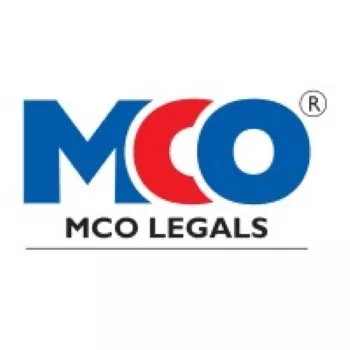- within Consumer Protection topic(s)
- in United States
- within Corporate/Commercial Law and Privacy topic(s)
- with readers working within the Law Firm industries
Introduction
In a much significant decision, the High Court of Delhi ("HC") held that a dispute where a lawyer is seeking recovery of professional fees from his client, cannot be considered to be a 'commercial dispute' under the ambit of the Commercial Courts Act, 2015 ("Commercial Courts Act"). [Atmastco Ltd. v. Mandeep Kalra, 2024 SCC OnLine Del 4467]
In other words, services rendered by an Advocate cannot fall under Section 2(1)(c)(xviii) of Commercial Courts Act. Further, a few months back, the Hon'ble Supreme Court of India ("SC") had held that services hired or availed from an Advocate cannot fall under the ambit of Consumer Protection Act, 2019 ("Consumer Protection Act") [Bar of Indian Lawyers through its President v. D.K. Gandhi PS National Institute of Communicable Diseases, Civil Appeal No. 2646 of 2009] as well. Therefore, relief by or against an Advocate cannot be sought either under Commercial Courts Act or Consumer Protection Act. The question therefore, arises is where does the relief lie?
EXCLUSION FROM COMMERCIAL COURTS ACT, 2015
The Statement of Objects and Reasons of Commercial Courts Act states that the primary purpose behind the enactment of the Act is to provide speedy disposal of high value commercial disputes. To fulfil this purpose, the Commercial Courts Act has been enacted for constitution of Commercial Courts, and other Commercial Appellate Courts for adjudicating commercial disputes of specified value.
In this backdrop, Section 2(1)(c) of the Commercial Courts Act enumerates different kinds of commercial contracts and transactions which have to be construed in a plain grammatical manner in order to ascertain whether the same are 'commercial disputes' or not. Section 2(1)(c)(xviii) of the Commercial Courts Act particularly defines 'commercial dispute' as arising out of 'an agreement for sale of goods or provision of services'. Though the expression 'provision of services' is used disjunctively from the expression 'sale of goods' in Section 2(1)(c)(xviii) of Commercial Courts Act, the overall theme and purport of 'provision of services' is to be read and understood when used in the realm of commercial activities only.
EXCLUSION FROM THE CONSUMER PROTECTION ACT, 2019
The Consumer Protection Act is enacted to establish authorities for timely and effective administration and settlement of consumer disputes in order to protect the interest of the consumers. In the Statement of Objects and Reasons of Consumer Protection Act - 1986 or 2019, there is no evidence to include 'Professions', or 'Services provided by the Professionals' like Advocates, Doctors etc. within the ambit of the Consumer Protection Act.
While tracing the legislative intent and adverting to the definition of 'services' and 'deficiency' provided under Sections 2(42) and 2(11) of Consumer Protection Act respectively, SC observed that Consumer Protection Act was enacted to provide better protection to the interests of the consumers against exploitation by traders and manufacturers of consumer goods.
While tracing the legislative intent and adverting to the definition of 'services' and 'deficiency' provided under Sections 2(42) and 2(11) of Consumer Protection Act respectively, SC observed that Consumer Protection Act was enacted to provide better protection to the interests of the consumers against exploitation by traders and manufacturers of consumer goods.
ADVOCATE'S SERVICE - WHETHER A 'CONTRACT OF PERSONAL SERVICE'?
In case of an Advocate-client relationship, the client exercises direct control over the Advocate who is rendering his legal professional services. The greater the amount of direct control exercised over the person rendering the services by the person contracting for them, the stronger would be the grounds for holding it to be a 'contract of (personal) service', as opposed to a 'contract for services'.
On a conjoint reading of the provisions contained in Order III of the Code of Civil Procedure, 1908 and Chapter IV of the Advocates Act, 1961 pertaining to right to practise, an Advocate has certain authorities by virtue of a vakalatnama but at the same time has certain duties too, i.e., the duties to the Courts, to the client, to the opponent and to the colleagues as enumerated in the Bar Council of India Rules.
A client exercises a considerable amount of direct control over the manner in which an Advocate renders his services during the course of his employment and, therefore, it has been presumed to be a contract 'of personal service'.
CONCLUSION
As held in Byram Pestonji Gariwala v. Union Bank of India and Others, AIR 1991 SC 2234; R. Muthukrishnan v. Registrar General, High Court of Judicature at Madras, (2019) 1 SCR 289 & State of U.P and Others v. U.P. State Law Officers Association and Others, AIR 1994 SCC 1654, legal profession cannot be equated with any other traditional profession. It is not a commercial profession but a noble one considering the nature of the duties to be performed and their impact on society.
Advocates are expected to act according to the principles of uberrima fides, i.e., the utmost good faith, integrity, fairness and loyalty while handling legal proceedings of clients. Thus, the legislative intent cannot be said to include 'Advocates' under the ambit of either the Commercial Courts Act or Consumer Protection Act. Therefore, the legal profession being sui generis in nature, a civil suit can be filed before a court of civil jurisdiction. In case of suit for recovery of professional fees, as per Article 113 of the Limitation Act, 1963, the limitation period is prescribed as 3 years from the date when the right to sue accrues. The right to sue accrues on the date the right to the recovery of the amount was unequivocally denied by the client/defendant (Kakodonga Tea Estate v. J.N. Saikia, AIR 1973 Gau 27).
The question whether a writ petition is maintainable for claiming the legal fee due to the counsel was decided by a Division Bench of the Madras High Court in Writ Appeal No. 2132 of 1987 on 14.06.1989 and held that in respect of the admitted claim the Advocate should not be driven to a civil Court. This was later upheld by the Supreme Court in Govt. of Tamilnadu v. R. Thillaivillalan, AIR 1991 SC 1231. By relying on this ruling, the High Court of Judicature, Andhra Pradesh at Hyderabad in the matter of P. Run Reddy v. The Shipping Corporation of India Ltd., 1992 SCC Online AP 528, held that a writ petition by an advocate is maintainable in those cases where a detailed investigation of facts is not involved.
Originally published 8th January, 2025.
The content of this article is intended to provide a general guide to the subject matter. Specialist advice should be sought about your specific circumstances.


